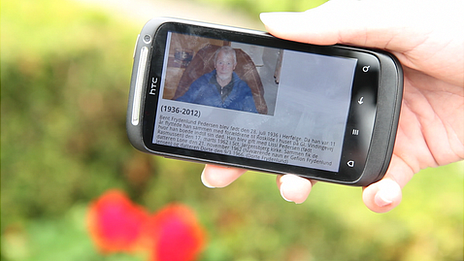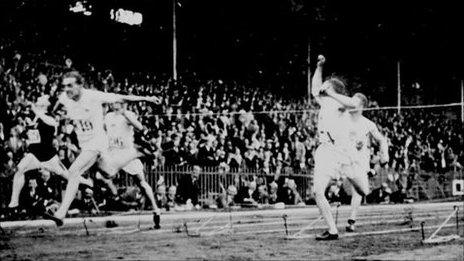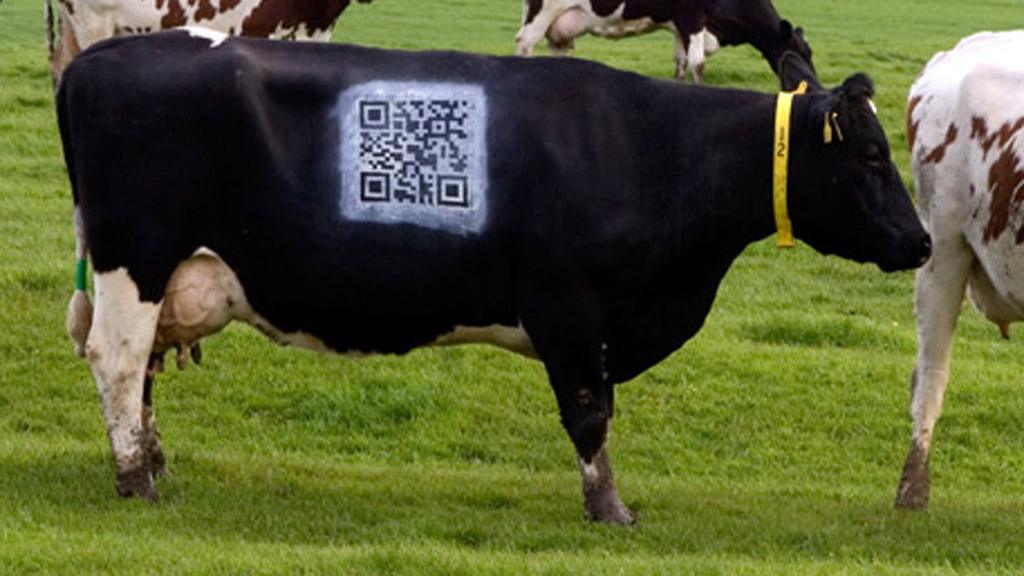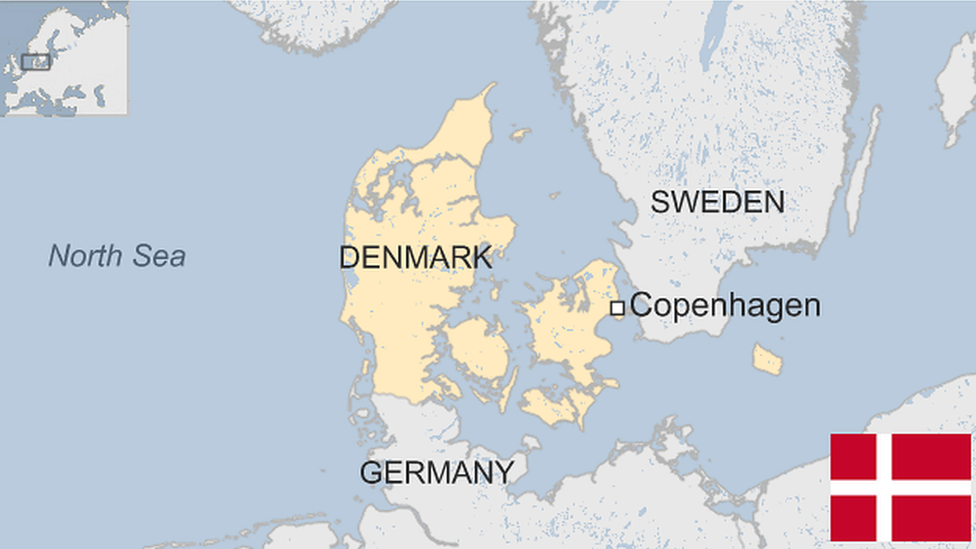Denmark pioneers hi-tech graveyard memorials with QR code
- Published

Carrying a posy of bright flowers, Dorthe Frydenlund strolls through a Roskilde graveyard to honour her father Bent, who died earlier this year.
Mrs Frydenlund is among those pioneering a novel way to commemorate the deceased.
Nestling amongst the colourful plants and vases is a stone adorned with a QR (Quick Response) Code.
Mrs Frydenlund's 14-year-old son Nikolai has a smartphone equipped with a free code-reading programme downloaded from the internet for free.
Nikolai reaches down, scans the QR Code with his phone and instantly the screen fills with a photograph of his grandfather, along with a summary of his life.
"As a family it means a lot when you are here and feel the need to commemorate Dad," says Mrs Frydenlund.
"It's not meant as a comfort, more an opportunity for other people to learn his life story. It's a good way for my son to remember his grandfather."
The service, which costs about 100 euros (£78; $123), stores audio and video to help keep the deceased's legacy alive in a creative way.
'Great potential'
Denmark's biggest gravestone manufacturer believes that soon, the porcelain plates bearing the QR code will be as much a part of the death process as writing a last will and testament.
Its director, Niels Kristian Nielsen, believes the codes will help boost earnings both at home and abroad.
"I think everyone will choose it. We see great potential in every country," says Mr Nielsen.
QR codes at the grave can be scanned by smartphones for more information on the deceased
"It's a good way to tell the story of a person. And we all have a story. Both the farmer, the director, they all have a story. And also it makes a visit to the graveyard much more interesting."
In the nearby town of Holbaek, the church council has purchased several plates to memorialise local dignitaries, such as a former mayor and the founder of Denmark's Venstre political party who passed away decades ago.
The council also intends to upload the obituaries of monks who inhabited a monastery on the outskirts of town.
The council's chair, Hanne Korsby, enthusiastically proclaims that the codes will become an important tool for preserving local history.
"I think history has been forgotten," she says.
"But there are lots of people who are important and I think their story and what they have done with their life is important. I think it's very important for the next generation to have this memory."
So if this trend expands, cemeteries as oases of tranquillity and reflection will no longer be the preserve of the bereaved but will also cater for the curious who want to know more about those resting in peace.
- Published7 July 2012

- Published26 June 2012

- Published8 January
